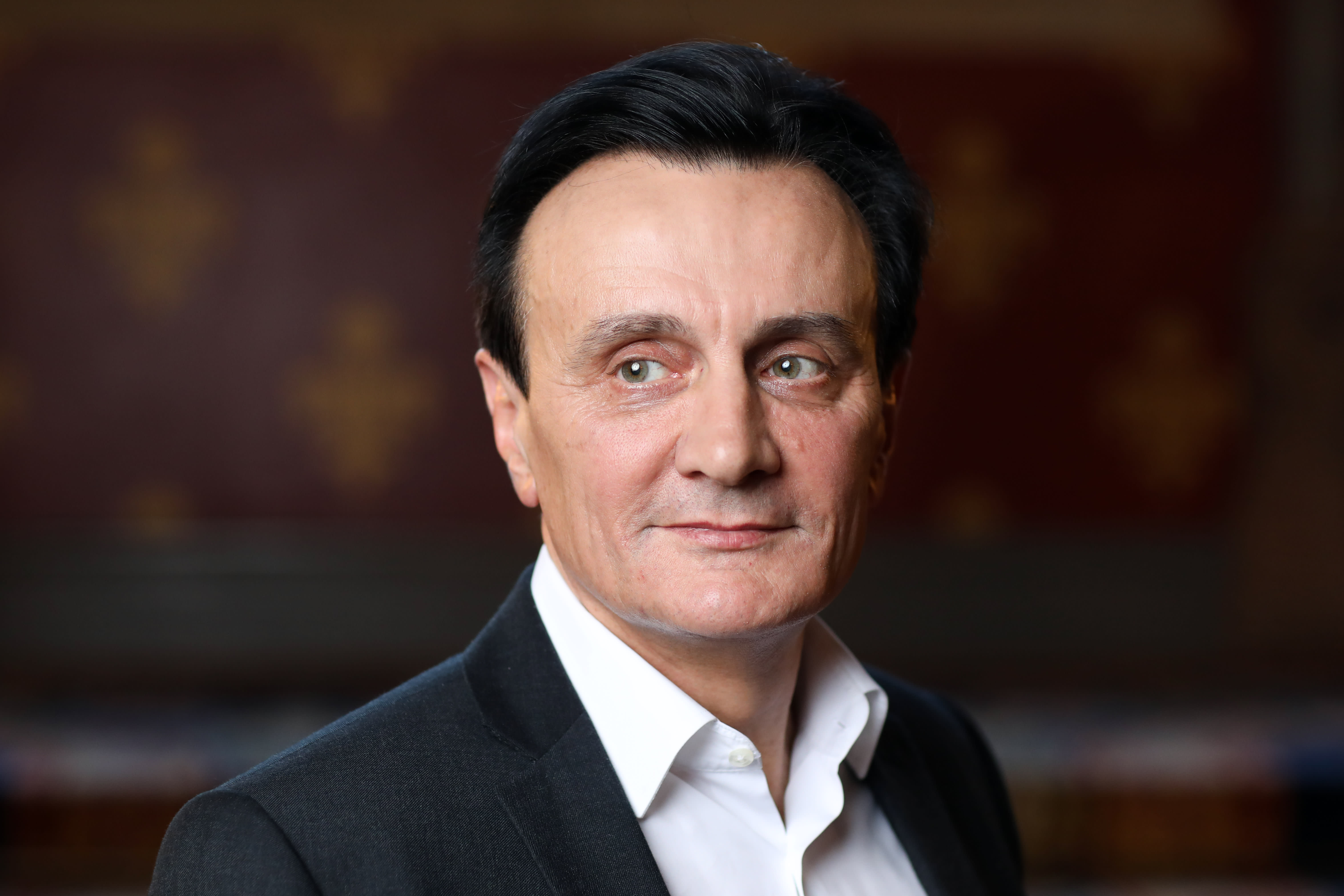
The participant who triggered a global shutdown of AstraZeneca's Phase 3 Covid-19 vaccine trials was a woman in the United Kingdom who experienced neurological symptoms consistent with a rare but serious spinal inflammatory disorder called transverse myelitis, the drug maker's chief executive, Pascal Soriot, said during a private conference call with investors on Wednesday morning.
The woman's diagnosis has not been confirmed yet, but she is improving and will likely be discharged from the hospital as early as today, Soriot said.
The board tasked with overseeing the data and safety components of the AstraZeneca clinical trials confirmed that the participant was injected with the company's Covid-19 vaccine and not a placebo, Soriot said on the conference call, which was set up by the investment bank J.P. Morgan.
Soriot also confirmed that the clinical trial was halted once previously in July after a participant experienced neurological symptoms. Upon further examination, that participant was diagnosed with multiple sclerosis, deemed to be unrelated to the Covid-19 vaccine treatment, he said.
The new disclosures made by Soriot were heard by three investors participating on the call and were shared with STAT. An AstraZeneca spokesperson did not respond to an email request for further comment.
Read more from STAT News:
Covid-19 drugs and vaccines tracker
Operation Warp Speed promised to do the impossible. How far has it come?
One investor on the call said Soriot's comments were intended to reassure investors that the company was taking the possible vaccine safety event seriously, and to reverse any damage to the company's stock price. "A vaccine that nobody wants to take is not very useful," said Soriot.
To date, AstraZeneca's public statements on the pause have been sparse with details. For instance, the company has not publicly confirmed that this is the second time its trials have been stopped to investigate health events among participants.
On Wednesday, the company issued a statement, attributed to Soriot, saying AstraZeneca would be guided by a committee of independent experts in determining when to lift the hold on the trial "so that we can continue our work at the earliest opportunity to provide this vaccine broadly, equitably and at no profit during this pandemic."
AstraZeneca's is the first Phase 3 Covid-19 vaccine trial known to have been put on hold. Such holds are not uncommon, and it's not clear yet how long AstraZeneca's will last.
"To have a clinical hold, as has been placed on AstraZeneca as of yesterday, because of a single serious adverse event is not at all unprecedented," Francis Collins, the director of the National Institutes of Health, told a Senate panel on Wednesday. "This certainly happens in any large-scale trial where you have tens of thousands of people invested in taking part, some of them may get ill and you always have to try to figure out: Is that because of the vaccine, or were they going to get that illness anyway?"
AstraZeneca only began its Phase 3 trial in the U.S. in late August. The U.S. trial is currently taking place at 62 sites across the country, according to clinicaltrials.gov, a government registry, though some have not yet started enrolling participants. The Phase 3 trial in the U.S. aims to enroll about 30,000 participants at 80 sites across the country, according to a release last week from the National Institutes of Health. Phase 2/3 trials were previously started in the U.K., Brazil, and South Africa.
The vaccine — known as AZD1222 — uses an adenovirus that carries a gene for one of the proteins in SARS-Cov-2, the virus that causes Covid-19. The adenovirus is designed to induce the immune system to generate a protective response against SARS-2. The platform has not been used in an approved vaccine, but has been tested in experimental vaccines against other viruses, including the Ebola virus.
Transverse myelitis is a serious condition involving inflammation of the spinal cord that can cause muscle weakness, paralysis, pain and bladder problems. In rare instances, vaccines have triggered cases of transverse myelitis; although it can also be caused by viral infections.
Top stories - Google News
September 09, 2020 at 09:18AM
https://ift.tt/35niJic
Covid-19 vaccine trial participant had serious neurological symptoms, but could be discharged today, AstraZeneca CEO says - CNBC
Top stories - Google News
https://ift.tt/2FLTecc
Shoes Man Tutorial
Pos News Update
Meme Update
Korean Entertainment News
Japan News Update
Bagikan Berita Ini















0 Response to "Covid-19 vaccine trial participant had serious neurological symptoms, but could be discharged today, AstraZeneca CEO says - CNBC"
Post a Comment